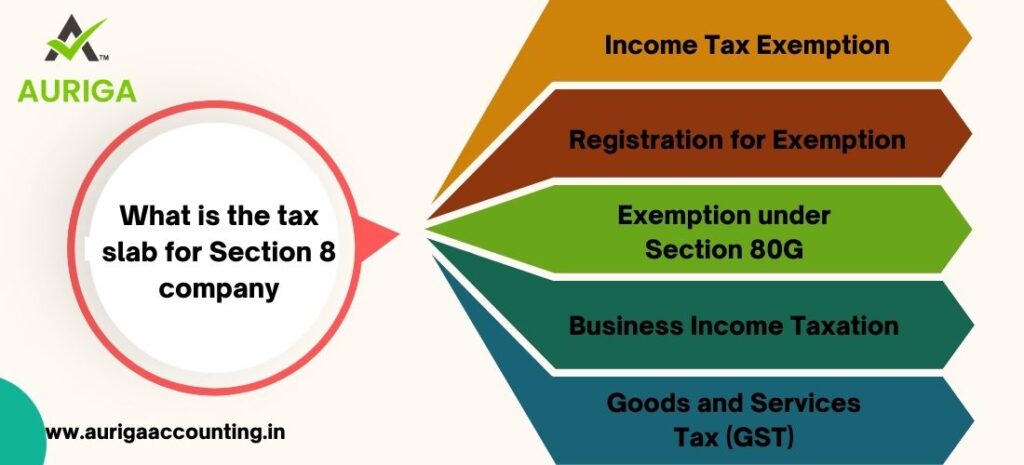
CAN A LLP BE CONVERTED INTO SECTION 8 COMPANY?
Introduction
ToggleYOU NEED TO KNOW CAN A LLP BE CONVERTED INTO SECTION 8 COMPANY?
Converting a Limited Liability Partnership (LLP) into a Section 8 Company in India involves a significant legal and procedural transformation. Both LLPs and Section 8 Companies have distinct features and purposes. An LLP is primarily formed for carrying on a business with limited liability, whereas a Section 8 Company is established for promoting non-profit objectives, such as charitable activities, education, or research. Despite their differences, it is possible to convert an LLP into a Section 8 Company under specific conditions and by following the prescribed legal processes. In this extensive guide, we will explore the procedures, requirements, and considerations for converting an LLP into a Section 8 Company in India. Visitofficialwebsite
UNDERSTANDING LLP AND SECTION 8 COMPANY
Limited Liability Partnership (LLP):
Limited Liability: LLPs provide limited liability protection to their partners, meaning that the personal assets of the partners are safeguarded from the business’s debts and liabilities.
Profit-Oriented: LLPs are typically established for carrying on a business or profession, with the primary focus on generating profits and revenue.
Flexible Management: LLPs offer flexibility in management, allowing partners to actively participate in business operations.
Regulatory Compliance: LLPs must adhere to the provisions of the Limited Liability Partnership Act, 2008, and are subject to various regulatory and compliance requirements, including annual filings.
Section 8 Company:
Non-Profit Objective: Section 8 Companies are created to promote charitable or non-profit objectives, such as education, art, social welfare, research, or environmental conservation. Their primary purpose is to serve the public interest.
Limited Liability: Like regular companies, Section 8 Companies provide limited liability to their members, safeguarding their personal assets.
Exemptions and Privileges: Section 8 Companies enjoy certain exemptions and privileges under the Companies Act, 2013, such as reduced compliance requirements and tax benefits. These incentives make them an attractive choice for organizations engaged in charitable work.
Regulatory Oversight: Section 8 Companies are subject to regulatory oversight by the Registrar of Companies (ROC) to ensure they operate in line with their charitable objectives. This oversight helps maintain transparency and accountability.
REASON FOR CONVERSION
Several reasons may prompt the conversion of an LLP into a Section 8 Company:
Change in Objectives: The LLP may wish to shift its focus from profit-making activities to engaging in charitable or non-profit endeavors that align more closely with the objectives of a Section 8 Company.
Enhanced Credibility: Converting to a Section 8 Company can enhance the organization’s credibility and trustworthiness, particularly when seeking donations or grants from government or non-governmental organizations.
Tax Benefits: Section 8 Companies enjoy tax exemptions and benefits that can be advantageous for organizations engaged in charitable work.
Greater Fundraising Opportunities: Section 8 Companies have a better legal framework for raising funds from various sources, including donations, grants, and government schemes.
Meeting Legal Requirements: If the existing activities of an LLP are closer to those permitted under Section 8 Company regulations, conversion may be necessary to ensure legal compliance.
Can we convert LLP to Section 8 company
Yes, it is possible to convert a Limited Liability Partnership (LLP) into a Section 8 Company in India. The conversion process involves specific legal procedures and regulatory approvals. Here are the key steps involved in converting an LLP to a Section 8 Company:
Board Resolution:
- Obtain a board resolution from the partners of the LLP approving the conversion to a Section 8 Company.
Approval from Partners:
- Obtain the consent of at least two-thirds of the partners for the proposed conversion.
Name Approval:
- Check the availability of the desired name for the Section 8 Company and reserve it through the RUN (Reserve Unique Name) service on the Ministry of Corporate Affairs (MCA) portal.
Application for Conversion:
- File an application with the Registrar of Companies (RoC) for the conversion of the LLP to a Section 8 Company. The application should include necessary documents such as the board resolution, consent of partners, and the proposed Memorandum and Articles of Association (MoA and AoA) for the Section 8 Company.
Approval from RoC:
- The RoC will review the application and, if satisfied, issue an approval for the conversion. The RoC may request additional documents or information during the process.
Issue of Certificate of Incorporation:
- Upon approval, the RoC will issue a new Certificate of Incorporation for the Section 8 Company.
Licence from Regional Director:
- After obtaining the Certificate of Incorporation, apply for a license from the Regional Director within 30 days. The license is a mandatory requirement for Section 8 Companies.
Transfer of Assets and Liabilities:
- Transfer the assets and liabilities of the LLP to the newly formed Section 8 Company.
Compliance with Regulations:
- Ensure compliance with all applicable regulations and guidelines related to Section 8 Companies.
Intimate Authorities:
- Intimate relevant authorities about the conversion, including the Income Tax Department, banks, and any other regulatory bodies as required.
It’s important to note that the conversion process involves legal and regulatory considerations, and professional advice should be sought to ensure compliance with the applicable laws and a smooth transition. The entire process is subject to the approval of the RoC and other regulatory authorities.
Can an LLP be converted into a company
Yes, it is possible to convert a Limited Liability Partnership (LLP) into a company in India. The conversion process involves specific legal procedures and regulatory approvals. The conversion can be done under the provisions of the Companies Act, 2013. Here are the key steps involved in converting an LLP into a company:
Obtain Consent:
- Obtain the consent of all the partners of the LLP for the proposed conversion. The consent should be in writing.
Board Resolution:
- Hold a meeting of the partners and pass a board resolution approving the conversion to a company.
Name Approval:
- Check the availability of the desired name for the new company and reserve it through the RUN (Reserve Unique Name) service on the Ministry of Corporate Affairs (MCA) portal.
Application for Conversion:
- File an application with the Registrar of Companies (RoC) for the conversion of the LLP into a company. The application should include necessary documents such as the consent of partners, board resolution, the proposed Memorandum of Association (MoA), and Articles of Association (AoA) for the company.
Approval from RoC:
- The RoC will review the application and, if satisfied, issue an approval for the conversion. The RoC may request additional documents or information during the process.
Issuance of Certificate of Incorporation:
- Upon approval, the RoC will issue a new Certificate of Incorporation for the company.
Transfer of Assets and Liabilities:
- Transfer the assets and liabilities of the LLP to the newly formed company.
Intimate Authorities:
- Intimate relevant authorities about the conversion, including the Income Tax Department, banks, and any other regulatory bodies as required.
Compliance with Regulations:
- Ensure compliance with all applicable regulations and guidelines related to companies.
Change in PAN and TAN:
- Apply for a change in PAN (Permanent Account Number) and TAN (Tax Deduction and Collection Account Number) with the Income Tax Department for the newly converted company.
It’s important to note that the entire conversion process is subject to the approval of the RoC and other regulatory authorities. Professional advice should be sought to ensure compliance with the applicable laws and a smooth transition from LLP to a company.

What is the tax slab for Section 8 company
Section 8 companies in India, being nonprofit organizations formed under Section 8 of the Companies Act, 2013, are eligible for certain tax exemptions. However, the tax exemptions are primarily related to the income tax provisions. Here are the key points regarding the tax treatment of Section 8 companies:
Income Tax Exemption:
- Section 12A of the Income Tax Act, 1961, grants exemption to the income of charitable or religious trusts and institutions. Section 8 companies are eligible for this exemption, subject to certain conditions. The income derived from property held for charitable or religious purposes or income derived from charitable activities is generally exempt.
Registration for Exemption:
- Section 8 companies need to apply for and obtain registration under Section 12A to avail of income tax exemptions. This registration is typically granted by the Commissioner of Income Tax (Exemption) based on the activities and objectives of the organization.
Exemption under Section 80G:
- Donors contributing to Section 8 companies can avail tax benefits under Section 80G of the Income Tax Act. However, it’s important for Section 8 companies to obtain approval under Section 80G to make donations eligible for tax deductions.
Business Income Taxation:
- If a Section 8 company generates income from business activities that are not directly related to its charitable objectives, such income may be subject to regular income tax.
Goods and Services Tax (GST):
- Section 8 companies may also be eligible for certain exemptions or concessions under the Goods and Services Tax (GST) regime, depending on the nature of their activities.
It’s crucial for Section 8 companies to carefully adhere to the applicable tax regulations, obtain the necessary approvals, and maintain proper documentation to ensure compliance. While the income related to charitable activities is generally exempt, it’s advisable for Section 8 companies to consult with tax professionals to ensure proper compliance with tax laws and regulations. Additionally, tax laws may change, so it’s important to stay updated on any amendments or revisions to the tax code.
Is audit mandatory for Section 8 companies
Yes, audit is mandatory for Section 8 companies in India. Section 8 companies, which are nonprofit organizations formed under Section 8 of the Companies Act, 2013, are required to comply with certain statutory audit requirements. The auditing of financial statements helps ensure transparency, accuracy, and accountability in the financial reporting of these entities.
Here are the key points related to the audit requirements for Section 8 companies:
Statutory Audit:
- Section 8 companies are required to undergo a statutory audit of their financial statements. The audit is conducted by a qualified Chartered Accountant or a firm of Chartered Accountants.
Annual Filing:
- Section 8 companies are obligated to file their financial statements, including the auditor’s report, with the Registrar of Companies (RoC) annually. The financial statements typically include the balance sheet, income statement, and cash flow statement.
Compliance with Accounting Standards:
- The audited financial statements of Section 8 companies must comply with the applicable accounting standards issued by the Institute of Chartered Accountants of India (ICAI).
Tax Audit:
- Section 8 companies may also be subject to tax audit requirements, depending on their annual turnover and other specified criteria. Tax audit provisions are outlined in the Income Tax Act, 1961.
Appointment of Auditors:
- Section 8 companies must appoint auditors at their annual general meeting (AGM). The auditors are appointed for a term of five consecutive years and may be reappointed for another term of five years at the AGM.
Auditor’s Report:
- The auditor’s report provides an independent opinion on the fairness of the financial statements. It includes observations on the company’s financial position, compliance with accounting standards, and any other relevant matters.
Internal Audit (Optional):
- While a statutory audit is mandatory, Section 8 companies may also choose to conduct internal audits for enhanced internal control and governance. Internal audits are not mandatory but can be beneficial for ensuring effective financial management.
Compliance with audit requirements is essential for maintaining the integrity of financial reporting, building trust among stakeholders, and meeting legal and regulatory obligations. Section 8 companies should ensure that they engage qualified auditors and adhere to the timelines and procedures prescribed for annual filings and audits.
Can Section 8 company borrow money
Yes, a Section 8 company in India has the authority to borrow money subject to certain conditions and limitations outlined in the Companies Act, 2013, and the rules and regulations governing such companies. However, the borrowing powers of a Section 8 company are typically restricted, and there are specific provisions that need to be considered:
Objects Clause in Memorandum of Association (MoA):
- The Memorandum of Association of the Section 8 company must specifically authorize it to borrow money. The objects clause in the MoA should explicitly state that the company has the power to borrow funds for its activities.
Approval from Members:
- Borrowing powers may require the approval of the members (shareholders) of the Section 8 company. This approval is usually obtained through a special resolution passed at a general meeting.
Limits on Borrowing:
- The Companies Act, 2013, specifies certain limits on the borrowing powers of companies, including Section 8 companies. The total borrowings of the company cannot exceed its paid-up capital and free reserves, unless special resolutions are passed allowing higher limits.
Debentures and Security:
- If the Section 8 company intends to issue debentures or provide any security for the borrowings, specific provisions in the Articles of Association (AoA) must be in place. The terms and conditions of debentures, if issued, should also comply with regulatory requirements.
Borrowing for Charitable Purposes:
- The borrowings by a Section 8 company should be for the furtherance of its charitable objects. The funds borrowed should be used for activities that align with the objectives specified in its Memorandum of Association.
Approval from Central Government:
- In certain cases, if the borrowings are expected to exceed a prescribed limit, the Section 8 company may need to seek approval from the Central Government.
It’s important for Section 8 companies to comply with the regulatory framework and ensure that borrowing activities are in line with their charitable or non-profit objectives. Any deviations from the authorized borrowing limits or purposes may result in legal and regulatory consequences.
LEGAL PROVISION FOR CONVERSION
The conversion of an LLP into a Section 8 Company is subject to specific legal provisions and must adhere to the procedures prescribed by the Ministry of Corporate Affairs. The key steps involved in the conversion process are as follows:
Obtain Consent from Partners: All partners of the LLP must unanimously consent to the conversion. This consent must be documented and passed as a resolution at a partner’s meeting.
Application to the ROC: A formal application for conversion must be submitted to the Registrar of Companies (ROC). The application should include the following documents:
- The proposed memorandum and articles of association for the Section 8 Company.
- A statement of assets and liabilities of the LLP.
- A copy of the consent obtained from partners.
- A declaration by a practicing chartered accountant or company secretary certifying the compliance with the rules and regulations.
Approval from ROC: The ROC will review the application for conversion and, if satisfied, will grant approval for the conversion. This approval is crucial for moving forward with the conversion process.
Dissolution of LLP: Following the approval from the ROC, the LLP must be dissolved. The dissolution process includes settling its debts and liabilities, liquidation of assets, and meeting all statutory requirements.
Transfer of Assets and Liabilities: The assets and liabilities of the dissolved LLP are transferred to the newly formed Section 8 Company. This process must be executed meticulously to ensure a seamless transition.
Issue of License: Upon successful conversion, the ROC will issue a license to the newly formed Section 8 Company. This license allows the company to operate as a non-profit organization under the Companies Act, 2013.
Compliance with Non-Profit Regulations: The newly formed Section 8 Company must strictly adhere to the regulations governing non-profit organizations. This includes ensuring that its operations are exclusively focused on the charitable objectives defined in its memorandum of association.
Tax Exemptions and Registrations: The Section 8 Company should apply for necessary registrations and exemptions under the Income Tax Act to avail of tax benefits available to non-profit entities.
CHALLENGE AND CONSIDERATION
Converting an LLP into a Section 8 Company presents several challenges and considerations:
Unanimous Consent: All partners of the LLP must unanimously agree to the conversion. If there is a lack of consensus, the conversion process may become complicated.
Dissolution and Asset Transfer: The dissolution of the LLP and the proper transfer of its assets and liabilities to the new Section 8 Company require meticulous planning and execution.
Financial Implications: Financial considerations, including settling debts, handling taxation, and meeting the compliance requirements of both the LLP and Section 8 Company, should be carefully managed.
Non-Profit Operations: The Section 8 Company must align its operations exclusively with its non-profit objectives. Any deviation from these objectives could result in regulatory issues.
Tax Implications: The newly formed Section 8 Company should be aware of the tax implications of its non-profit status and seek professional guidance on tax compliance.
Legal and Regulatory Compliance: Both the conversion process and the ongoing operations of the Section 8 Company must adhere to the legal and regulatory framework governing non-profit entities.
Is tax audit compulsory for Section 8 company
tax audit for a Section 8 company in India is not mandatory solely based on its status as a Section 8 company. The requirement for a tax audit is generally determined by the annual turnover and other specified criteria outlined in the Income Tax Act, 1961.
Here are the key points:
Threshold Limits: Tax audit provisions are applicable when the annual turnover or gross receipts of a business or profession exceed the prescribed threshold limits. As of my last update, the threshold for businesses is typically Rs. 1 crore, and for professionals, it is Rs. 50 lakhs.
Section 8 Company Status: The tax audit requirement for a Section 8 company is not directly linked to its status as a Section 8 company. Instead, it depends on the income and turnover levels.
Other Factors: Apart from turnover, other factors such as the nature of income, business activities, and applicability of presumptive taxation schemes can also influence the need for a tax audit.
Professional Advice: Tax laws are subject to change, and it’s advisable for Section 8 companies to consult with a qualified tax professional or chartered accountant to determine their specific obligations regarding tax audits. Professionals can provide updated information and guide companies on compliance with tax regulations.
Please note that tax laws may have been updated or amended after my last knowledge update in January 2022. It’s recommended to verify the current tax regulations or seek professional advice for the latest and most accurate information.
CONCLUSION OF CONVERTING LLP INTO SECTION 8 COMPANY
The conversion of an LLP into a Section 8 Company is a significant transformation that requires careful planning, adherence to legal procedures, and an understanding of the unique requirements of non-profit entities. It’s important to consult with legal and financial professionals experienced in such conversions to navigate the process effectively. While the conversion offers the opportunity to engage in charitable activities and enjoy tax benefits, it also brings with it specific responsibilities and compliance obligations that must be diligently managed by the newly formed Section 8 Company.
HOW AURIGA ACCOUNTING HELP YOU TO CONVERTED LLP FROM SECTION 8
Legal Advisory Services: Accounting and consulting firms often have legal experts who can provide guidance on the legal requirements and procedures involved in converting from an LLP to a Section 8 Company. This includes understanding the documentation, approvals, and regulatory compliance needed for the conversion.
Due Diligence: Conducting due diligence is crucial before initiating the conversion process. Accounting firms can help with financial due diligence to evaluate the financial health of the business and identify potential risks and benefits associated with the conversion.
Business Structure and Tax Planning: These firms can assist in selecting the most suitable business structure for the new entity, whether it’s an LLP or a Section 8 Company. They can also provide guidance on tax planning to minimize tax liabilities and ensure compliance with tax regulations post-conversion.
Documentation Preparation: Preparing the necessary legal documents, such as resolutions, applications, and filings, is an integral part of the conversion process. Accounting and consulting firms can help in drafting and submitting these documents accurately.
Compliance Management: Ensuring compliance with various legal and regulatory requirements during and after the conversion is vital. Accounting firms can assist in establishing and maintaining compliance frameworks.
Financial Projections and Reporting: Creating financial projections for the new entity is often necessary. Accounting firms can help in preparing financial forecasts and reports required for approvals and decision-making.
Stakeholder Communication: Effective communication with the business’s stakeholders, including partners, creditors, and regulators, is crucial during the conversion process. Accounting firms can help in drafting and disseminating the necessary communications.
Resolution of Challenges: If challenges or objections arise during the conversion process, accounting and consulting firms can assist in addressing them and finding solutions.
Post-Conversion Support: After the conversion is complete, there may be ongoing accounting, financial reporting, and compliance requirements for the new entity. Accounting firms can provide support in managing these aspects.
Financial and Tax Advisory: Managing finances and understanding tax implications for the newly converted entity are ongoing concerns. Accounting firms can continue to provide financial and tax advisory services to ensure smooth operations.












